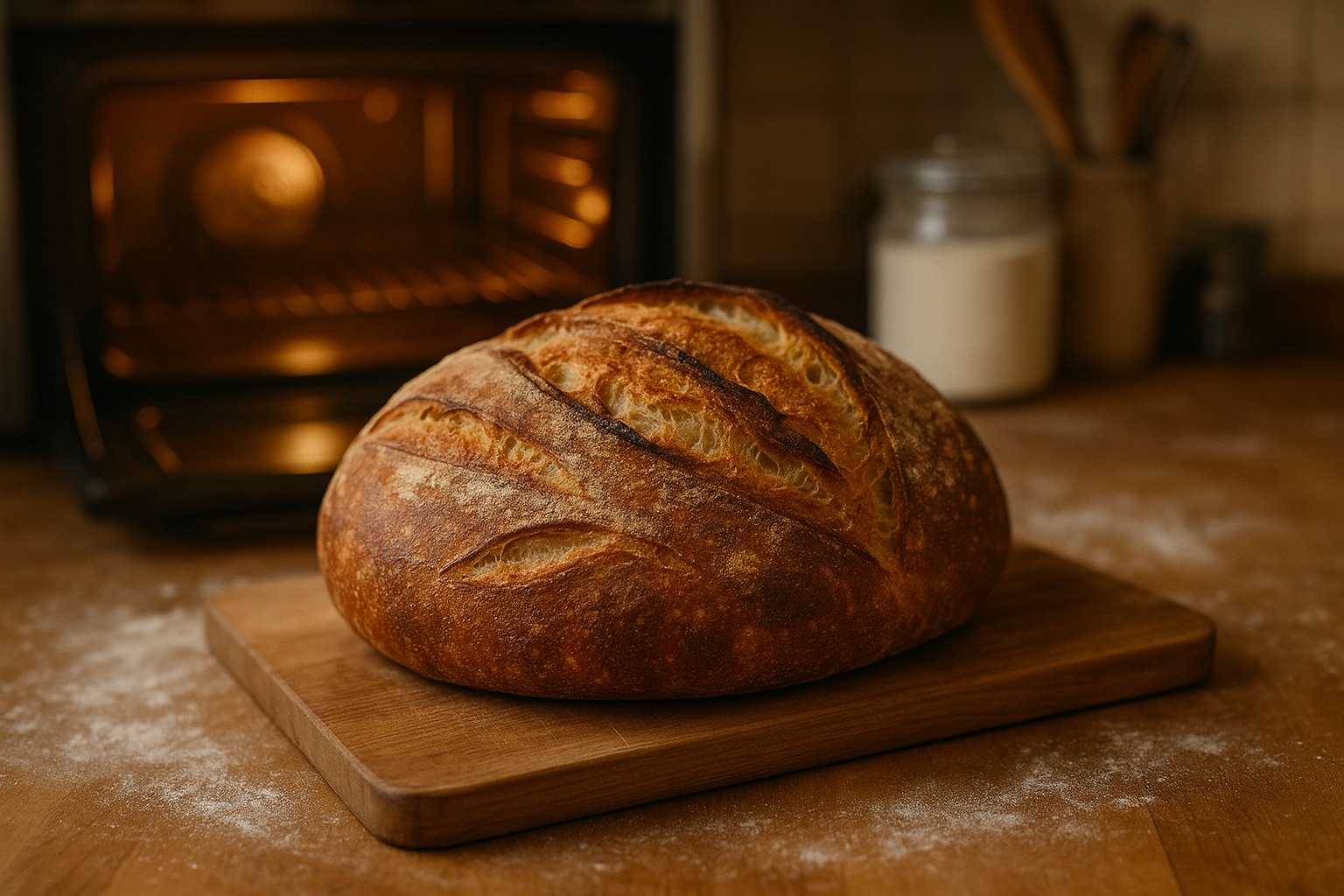How to Make a Sourdough Starter at Home
What is a Sourdough Starter?
A sourdough starter (eksi maya) is a natural leavening culture made by fermenting flour and water. Wild yeast and lactic acid bacteria develop over days and provide rise and flavor to sourdough bread.
Ingredients
- Whole wheat or rye flour (for Day 1): 100 g
- Filtered or non-chlorinated water (lukewarm): 100 ml
- For regular feedings: 50 g flour + 50 ml water
Equipment
- Clean glass jar (750 ml or larger)
- Spoon or spatula
- Kitchen scale (recommended)
- Breathable cover (cloth or loose lid)
Step-by-step Instructions
Day 1 — Mix
- Combine 100 g whole wheat flour with 100 ml lukewarm water in a jar.
- Stir until smooth (like thick pancake batter). Cover loosely and leave at room temperature for 24 hours.
Day 2 — Feed
- Discard about half the mixture (this keeps the acidity and volume manageable).
- Add 50 g flour and 50 ml water, mix, and cover.
Day 3 — Watch for Bubbles
- Small bubbles and a slightly tangy smell should develop.
- Repeat the discard-and-feed (50 g flour + 50 ml water).
Days 4–6 — Strengthen
- Feed once or twice daily (discard half, then add 50 g flour + 50 ml water).
- The starter should start doubling in size within a few hours after feeding.
Day 7 — Ready to Use
- Perform the float test: drop a spoonful of starter into a bowl of water — if it floats, it is active and ready for baking.
Notes
If your kitchen is cool, fermentation may take longer. Keep the starter between 22–26°C for best results. If an off-putting smell (rot or strong acetone) appears, discard and restart.
Tips & Maintenance
- Feed at the same time each day to build a reliable routine.
- Use filtered water to avoid chlorine which can inhibit wild yeast.
- Store in the fridge if you bake less frequently — feed weekly.




